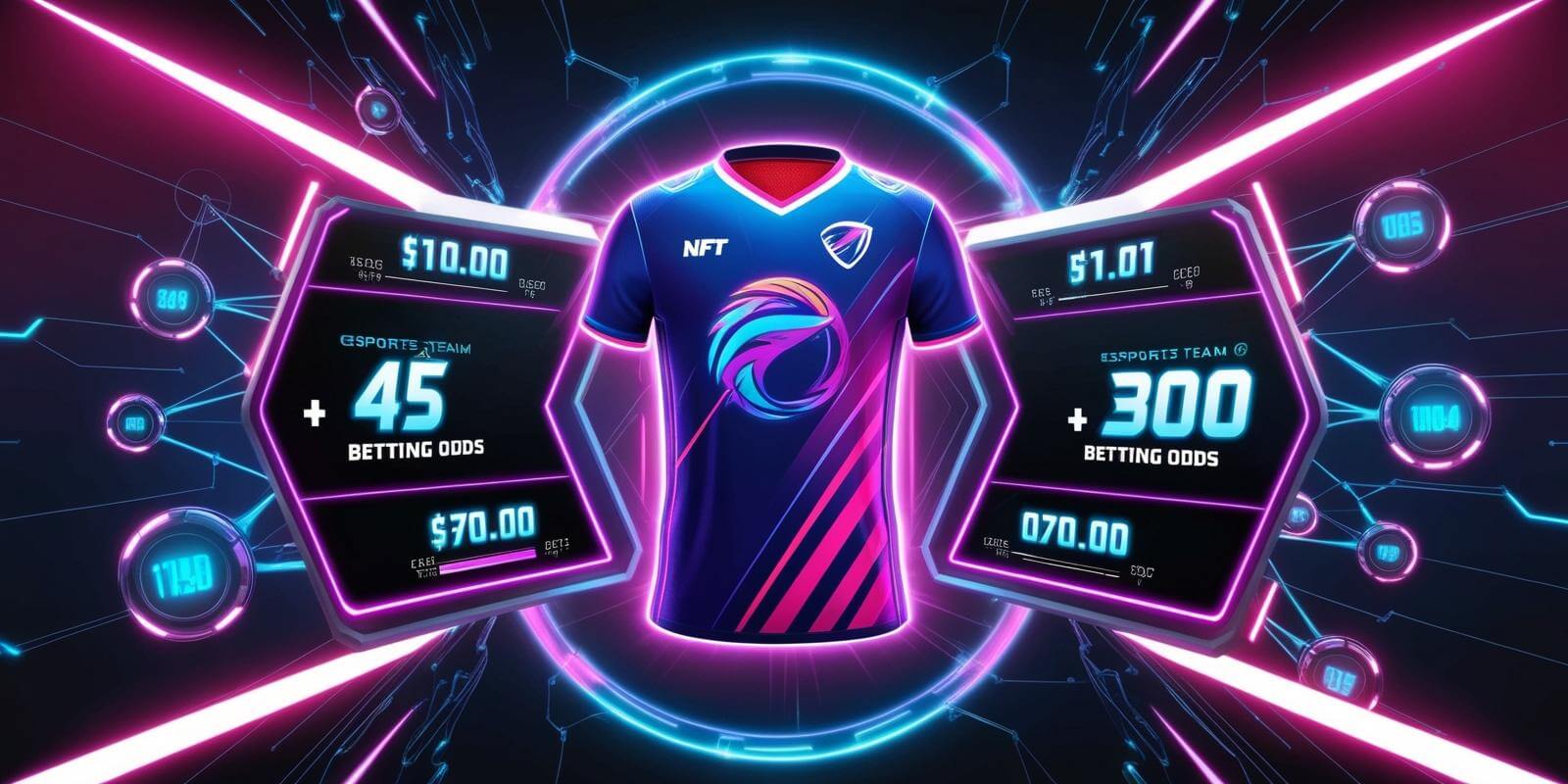The world of Esports betting is no stranger to innovation. From cryptocurrency payments to live-streamed odds, the industry thrives on cutting-edge tech. Now, a new player is shaking things up: non-fungible tokens (NFTs).
These unique digital assets, built on blockchain technology, are transforming the way bettors engage with esports platforms, creating new opportunities and challenges.
In this post, we’ll explore how NFTs are reshaping the esports betting landscape, from enhancing fan engagement to introducing novel revenue streams, while addressing the hurdles that come with this tech revolution.
What Are NFTs, and Why Do They Matter in Esports Betting?
NFTs are one-of-a-kind digital tokens stored on a blockchain, often Ethereum, that certify ownership of assets like artwork, collectibles, or even virtual memorabilia.
Unlike cryptocurrencies like Bitcoin, which are interchangeable, each NFT is distinct, making them perfect for representing exclusive items. In esports betting, NFTs are emerging as tools to deepen user interaction and offer unique rewards.
Imagine owning an NFT that grants you VIP access to a betting platform’s exclusive tournaments or unlocks premium odds for a League of Legends World Championship match. These tokens aren’t just collectibles; they’re gateways to enhanced betting experiences.
According to a report by Statista, the global NFT market was valued at over $40 billion in 2022, indicating its growing influence across various industries, including gaming and betting.
NFTs as Digital Collectibles in Esports Betting
Unlocking Exclusive Betting Opportunities
One of the most exciting ways NFTs are changing esports betting is through digital collectibles. Betting platforms like BC.Game and MetaWin are integrating NFTs to offer bettors unique assets tied to their favorite teams or players.
For instance, you might purchase an NFT representing a digital jersey from a top Counter-Strike 2 team. This token could unlock special betting markets, such as predicting the MVP of a match, or provide cashback bonuses.
These collectibles create a sense of ownership and loyalty, encouraging bettors to stay engaged. Platforms reward loyal users with NFTs that can be traded or used to access premium features, blending gambling with the thrill of collecting rare digital items. This gamification keeps users coming back, boosting platform retention rates.

Enhancing Transparency with Blockchain
NFTs rely on blockchain, which brings provably fair betting to the table. Traditional betting platforms sometimes face scrutiny over transparency, but blockchain’s public ledger records every transaction, bet, and payout.
This reduces fraud risks and builds trust. For example, Sportsbet.io uses decentralized apps (dApps) powered by blockchain to ensure bets are transparent and tamper-proof.
Bettors can verify outcomes for games like Dota 2 or Valorant, knowing the platform can’t manipulate results. This transparency is a game-changer, especially for crypto-savvy users who value security and fairness. As blockchain adoption grows, we’ll likely see more platforms embracing NFTs to offer verifiable betting experiences.
New Revenue Streams for Platforms and Bettors
NFTs open up innovative revenue models for both betting sites and users. Platforms can mint and sell limited-edition NFTs tied to major tournaments, like the League of Legends Worlds or CS2 Majors, generating income while engaging fans. Bettors, meanwhile, can trade these NFTs on marketplaces like OpenSea, potentially profiting from their rising value.
Some platforms, like Rollbit, even integrate NFT trading alongside betting, allowing users to speculate on crypto prices or trade collectibles while wagering on esports. This dual functionality appeals to tech-savvy audiences, merging gambling with investment opportunities. However, the volatility of NFT markets poses risks, as values can fluctuate wildly.
Challenges of NFTs in Esports Betting
While NFTs bring exciting possibilities, they’re not without challenges. Regulatory hurdles are a major concern, as countries have varying laws on crypto and gambling. For instance, some jurisdictions require strict KYC (Know Your Customer) protocols, clashing with the anonymity NFTs and crypto offer.
Market volatility is another issue. An NFT tied to a popular esports team might soar in value during a winning streak but crash if the team underperforms. Bettors need to understand these risks before investing.
Additionally, the environmental impact of blockchain, particularly energy-intensive processes like Ethereum’s former proof-of-work system, has drawn criticism. Platforms are shifting to greener alternatives like Ethereum’s proof-of-stake, but concerns linger.
The Future of NFTs in Esports Betting
Looking ahead, NFTs are poised to deepen their integration into esports betting. We could see virtual reality (VR) betting experiences, where NFT ownership grants access to immersive arenas for watching and wagering on matches.
Smart contracts might automate bet settlements, ensuring instant payouts. There’s also potential for NFTs to represent in-game items, like CS2 skins, used directly in betting markets.
As esports betting grows—projected to hit $3.3 billion by 2028, per TrySpeed—the role of NFTs will expand, driven by their ability to engage fans and enhance platforms. Staying informed about regulatory shifts and market trends will be key for bettors and operators alike.
Conclusion
NFTs are revolutionizing esports betting by offering exclusive collectibles, transparent betting systems, and new revenue streams. While challenges like regulation and volatility remain, the potential for innovation is undeniable.
Whether you’re a seasoned bettor or a curious newcomer, exploring NFT-powered platforms could unlock a thrilling new dimension of esports gambling.
Dive in, but always bet responsibly—after all, the game’s only fun when you play smart!
